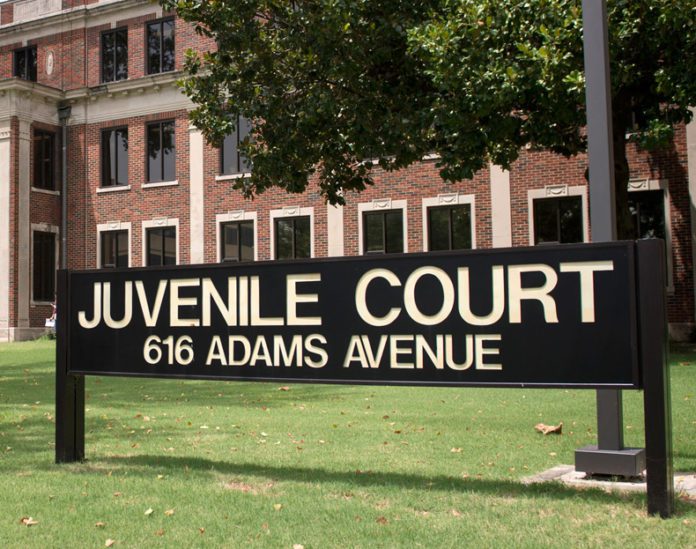Juvenile Court Judge Dan Michael is facing three challengers in his bid for re-election, including Tarik B. Sugarmon, who Michael defeated by garnering 54 percent of the vote to Sugarmon’s 46 percent in 2014.
Besides Sugarmon, who is a City Court judge, Michael also is challenged by William Ray Glasgow and Dee Shawn Peoples in the Aug. 4 Shelby County general election.
Early voting began July 15 and ends Saturday (July 30).
The Juvenile Court race is one of the most important judicial races on the ballot given the long-running criticism and discussions regarding how juvenile criminal offenders are or should be handled.
The criticism includes concerns that African-American youthful defenders are overrepresented in the Juvenile Court, as well as the nation’s juvenile justice system as a whole. This factor is commonly referred to as disproportionate minority contact.
A 2012 U.S. Department of Justice investigation found that the local court was violating children’s constitutional rights, regarding, among other things, adequate legal representation and minority offenders being treated more harshly than white offenders.
The Justice Department installed monitors to oversee the pace of improvements. Federal oversight of Juvenile Court ended in 2018 after it was determined Michael’s administration was in compliance with recommendations.
Child advocates acknowledge that Michael has made improvements in how the court handles juvenile offenders, but they said problems persist, particularly regarding racial disparities in the number of offenders transferred to adult court.
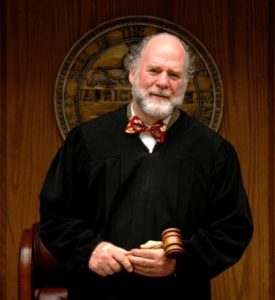
Michael, however, has vigorously defended his administration, acknowledging there were valid issues that needed to be addressed in 2012.
“We have continued to work with the experts in detention and experts on juvenile detention alternative initiatives to reduce the number of children coming into court,” said Michael.
“…We continue to limit the types of cases coming into detention and still work hard to reduce transports to the center. … We are now working with a Youth Villages program that takes our toughest kids to try and turn them around before they cause more community heartache. It has worked in other big cities.”
Michael not only stands by his administration’s performance but insists his “vision” warrants another term.
“I want to get the new detention center open for our children and our sheriff’s deputies, who work in that difficult environment,” said Michael.
Another priority, he said, is to keep detention transports at a minimum.
“Transports have been reduced 78 percent, from 800 or 900 a month to just 20 last year,” said Michael. “Tennessee’s juvenile code does not mention punishment. Rehabilitation is our goal.”
Michael was appointed chief counsel by then- (Juvenile Court) Judge Kenneth Turner in 1995. Turner later appointed him to the bench as a referee in 2001.
Turner’s successor, Curtis S. Person, later appointed Michael chief magistrate and special judge in 2013.
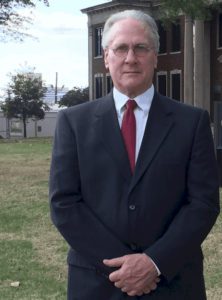
Candidate Glasgow said, “One very important thing that’s just not happening is follow-up on children. We need to know how the child is doing. There are resources and funding to help families. We need a 90-day probation period… Juvenile probation is broken because probation officers are not allowed to do their jobs.”
Glasgow noted that juvenile cases once “were actually heard by elected judges (instead of judge-appointed magistrates). As it stands now, there is no accountability. While there is a statute, which allows the judge to appoint special judges, magistrates … that law is being extremely abused.”
And, said Glasgow, “Juvenile Court regularly separates families. Parental rights are terminated, and many times, which isn’t what the child or parents want. Those children are being run through that system like a bunch of cattle. It just isn’t right.”
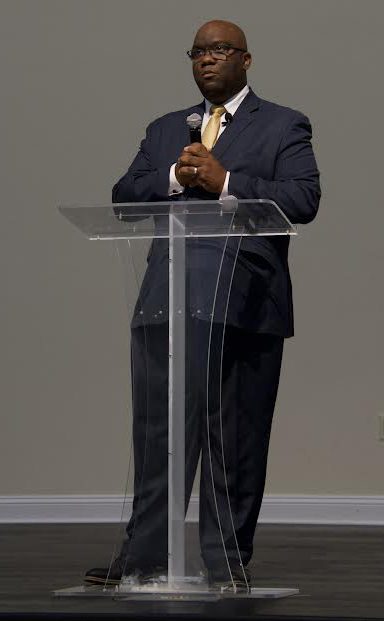 Candidate Peoples said “outreach and intervention should occur earlier for high-risk children” before they get into trouble.
Candidate Peoples said “outreach and intervention should occur earlier for high-risk children” before they get into trouble.
“I’ve been in family law for more than 20 years. I volunteer in my community. Working with children is the kind of work I do. I have been a DCS attorney, dealing with issues of delinquency, child abuse, and neglect.”
One problem, said Peoples, is that “Juvenile Court rehabilitation programs are accessed once the child is already in trouble. Outreach and intervention should occur earlier for high-risk children.”
Peoples said early intervention gives the children tools and resources needed to keep them out of trouble. She added families should not be broken up, and children so quickly removed because parents lose their rights.
“…Our children are left with no hope. And children with no hope become suicidal. … A Juvenile Court judge has to meet with his magistrates and tell them they must see Black children as people …”
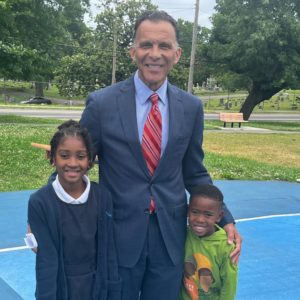
Sugarmon said his father, noted civil rights activist and attorney Russell Sugarmon, was the first Black to serve as Juvenile Court referee (now called magistrates). Then-judge Kenneth Turner appointed him.
However, Sugarmon said his father lamented that the system was designed to be oppressive for children and their families.
“My father said it was Turner’s plantation. … Dad finally quit. His hands were tied. Turner ruled with an iron fist. That same system still exists. Look at the Department of Justice findings.
“Even now, Black children are treated more harshly and not likely to receive the leniency afforded white children. My experience as a judge dictates that more equitable and rehabilitative measures be utilized, especially for children.…
“I believe the people of Shelby County are ready for change.”



